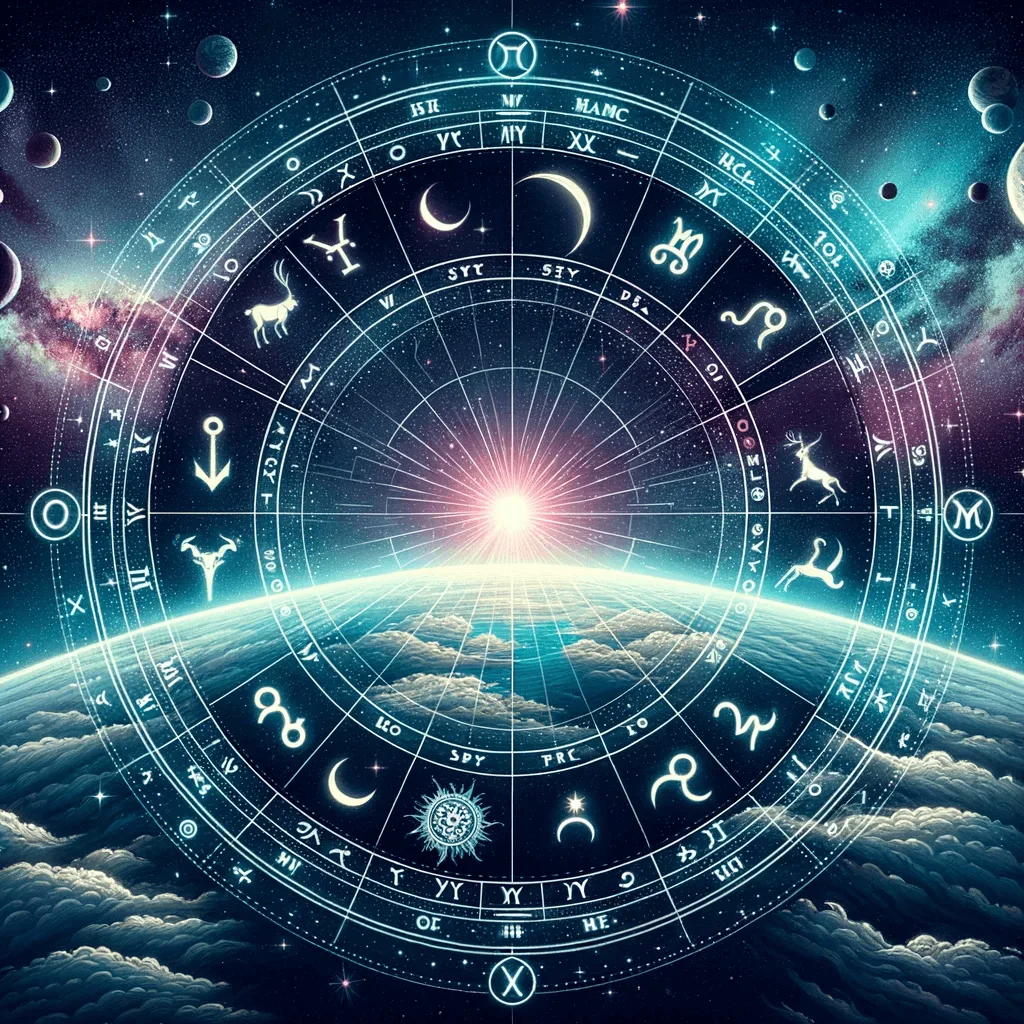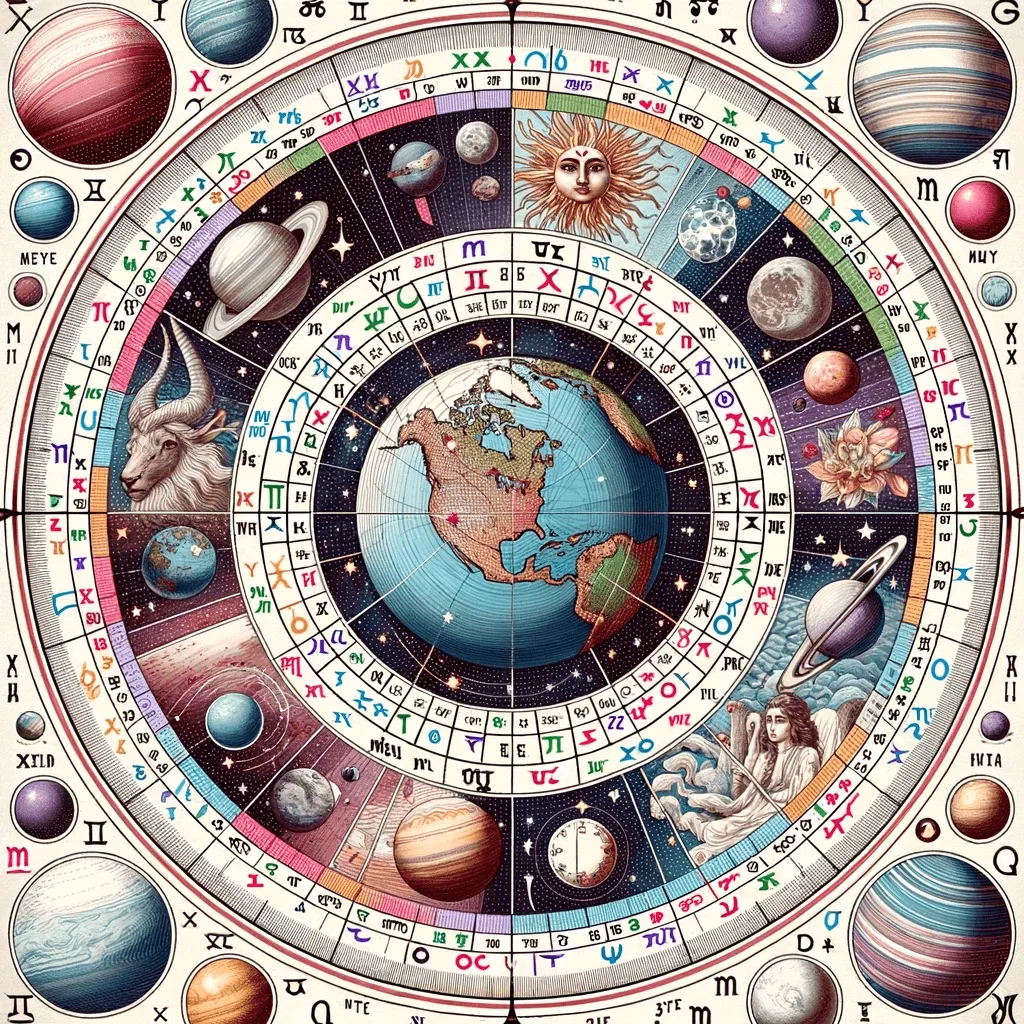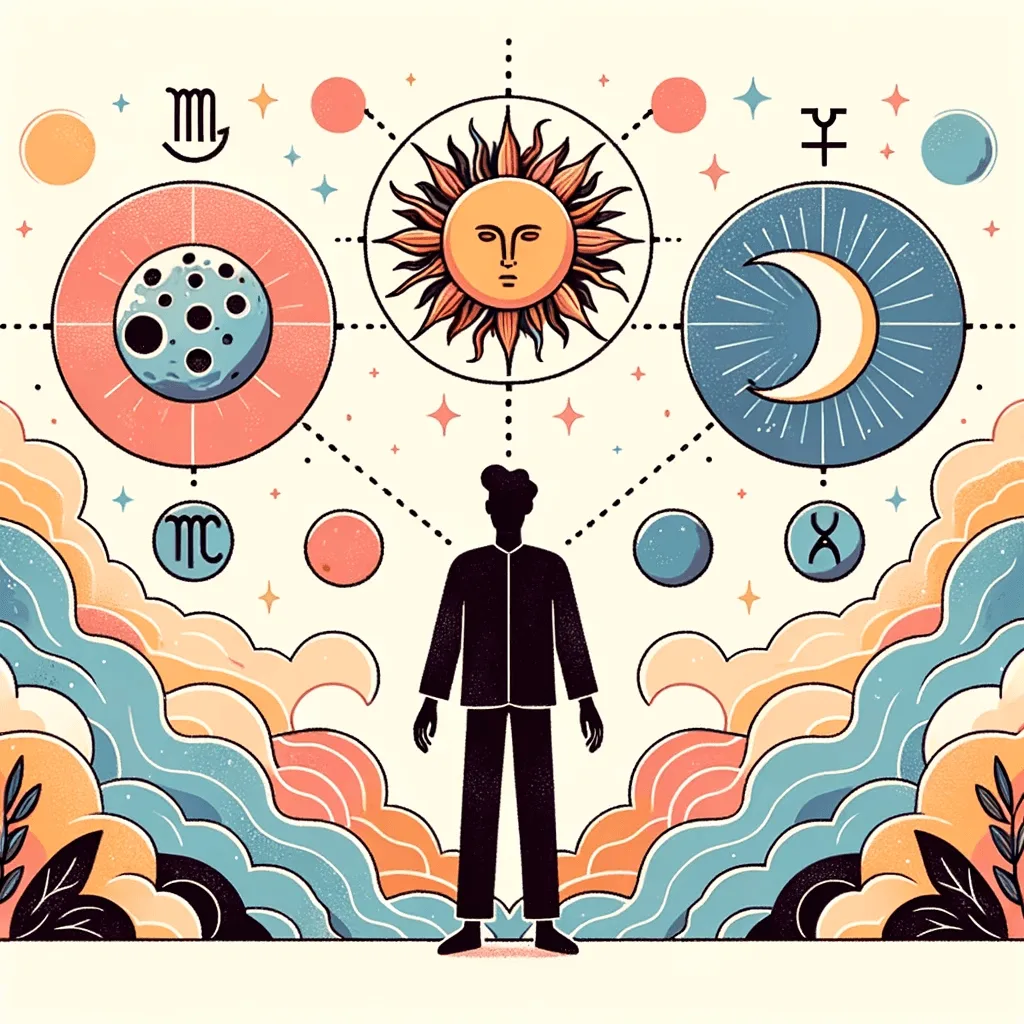
The Ascendant: Gateway To The Natal Chart
The Ascendant, often referred to as the Rising Sign, is an indispensable component of a natal chart in astrology. Serving as the starting point of the chart, it delineates the first house and sets the tone for interpreting the remaining houses. The Ascendant is a symbolic representation of one's initial impression on the world and paints a portrait of how individuals navigate their surroundings.
article by Priya Deshmukh
Astrological Birthright: The Natal Chart
Every individual's natal chart is as unique as their fingerprint. It's a celestial snapshot of the positions of the planets, the Sun, and the Moon at the exact moment of their birth. This chart becomes the astrologer's guide, providing profound insights into a person's personality, desires, challenges, and destiny. Central to this map is the Ascendant, an often understated yet deeply significant point.

Significance Of The Ascendant's Position
While the Sun sign showcases core personality traits and the Moon sign reveals emotional tendencies, the Ascendant represents the mask we wear, the first impression we make on others, and how we engage with the world. It's like the cover of a book – while it doesn't reveal everything, it provides a significant introduction. Its position, determined by the zodiacal sign that was rising on the eastern horizon at the time of birth, holds clues to our instinctive reactions and general disposition.
The Interplay Of Houses & Ascendant
As the cusp of the first house, the Ascendant plays a pivotal role in determining the layout of one's natal chart. Beginning from this point, astrologers demarcate the twelve houses, each symbolizing different life aspects. The first house, governed by the Ascendant, pertains to one's self-image, physical appearance, and general temperament. The sign and any planets close to the Ascendant further accentuate or modify these characteristics.

Calculating The Ascendant
The Ascendant isn't determined by the day or month of birth but by the exact time and location. Given the Earth's rotation, a complete cycle of the zodiac transits the Ascendant roughly every 24 hours. Therefore, even twins born minutes apart can have different Rising signs, leading to distinct life experiences and perceptions.
Personalizing Predictions With The Ascendant
In predictive astrology, the Ascendant and its ruling planet become crucial interpreters of an individual's experience of transits and progressions. For instance, if Venus, the planet of love and relationships, transits one's Ascendant, they might experience enhanced social interactions or even a new romance.

A Pivot In Astrological Profiling
The Ascendant is more than just a point in the natal chart; it's a dynamic and defining force that shapes our interactions and perceptions. While often overshadowed by the luminosity of the Sun and Moon signs, its value in astrological interpretation remains paramount, offering a nuanced lens through which we view our journey.
Published: 10/19/2023
Modified: 10/23/2023
More predictions
Come back here soon to learn more about yourself and your future


How Astrology Affects Your Life
Amidst the grandeur of the cosmos, under the watchful eyes of celestial entities, humans have, since time immemorial, pondered upon a mystifying question: How does astrology affect our lives?


The Enchanted Tapestry Of Tarot
In the mystical land of Cardomancy, where every leaf whispered secrets of the unknown and every stone held the memories of time, there dwelled a question, as ancient as the wind: Is the tapestry of Tarot truly intertwined with the threads of the future?


Probing The Accuracy Of Astrology Predictions
Waltzing through time and space, astrology, with its celestial allure, has persistently beckoned to humanity, intertwining with our spiritual pursuits and existential queries. One pivotal interrogation cascades through the cosmic dust and permeates our astral exploration: can astrology predictions be wrong?